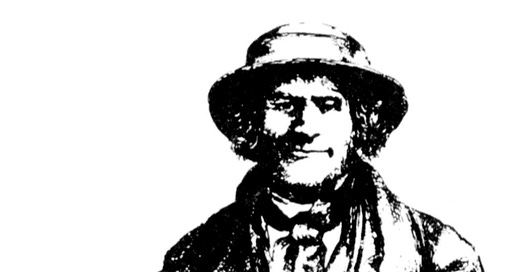3
LATER, AS A YOUNG MAN, I went to work as an editor on the staff of The Young People’s Cyclopedia. This compendium of useful facts, historical anecdotes, brief lives, practical instruction, oversimplifications, and misinformation was compiled first in a small office above Jack’s Twenty-Four Hour Jokes, on the corner of Bolotomy and Main, in the heart of Babbington, and later, when it had become an institution, in a concrete castle, one of those structures that businesses build to show their nostalgia for feudalism, outside town in a spot that had once been a potato farm and now held many industrial and office buildings and was called, preposterously, a park. The entries were written by a network of experts, amateurs, teachers, and housewives who were assigned topics to develop within strict limits of space. To add a little to the salary I received there, I wrote some entries myself, borrowing as a pseudonym the name of a good friend, Eliza Foote. As Eliza Foote, I wrote many entries in The Young People’s Cyclopedia, including entries for most of the Leroys, points of interest in and around Babbington, bivalves, and friends and acquaintances who deserved, it seemed to me, a little space on a library shelf. For the entry on Black Jacques, I used some of what Great-grandmother had told me, and lots of sawdust.
LEROY, JOHN PETER
“Black Jacques,” 1836[?]–1906, American brewer, born Algiers. Among beer drinkers, it is sometimes said of Black Jacques that “He invented beer.” Although this is not correct, it is arguably true that he developed the best of beers; this was the legendary Leroy Lager, a sturdy and honest drink, relative only by name to the insipid brew later marketed by his son, John Henry (“Fat Hank”). Often credited (erroneously) with having first marketed beer in pint bottles, Black Jacques did introduce the now widespread practice of printing a poem on a label on the back of each bottle, thus raising the tone of taverns across the land. The period when Black Jacques himself ran the Leroy brewery has come to be known as the Golden Age of Brewing. Sales of the original Leroy Lager were never large, and Black Jacques grew increasingly bitter about its lack of success. Like many another original, he labored under the delusion that something of essentially limited appeal could, as the result of a mutation of public taste, acquire a large and devoted following. In 1894, broken in spirit, he gave the Leroy brewery to his son as a wedding present. Fat Hank, more in tune with popular taste than his father, began brewing a beer that went down more easily than the original, and he launched a promotional campaign that set an industry standard. He continued to publish poems on the Leroy labels, but required that each poem submitted be accompanied by six caps from Leroy bottles, the only requirement for acceptance. At least partly as a result of this practice, the number of poets began a steady increase that has not yet peaked. Another more or less direct consequence was the introduction of the six-pack (q.v.), which put six caps into the hands of the bibulous scribbler at once, in an easy-to-handle package. Fat Hank grew increasingly concerned that his success could not last. He calculated that if sales continued to grow at their then-current rate, by the end of the twentieth century every person in the world capable of holding a pen in one hand and a beer bottle in the other would be spending every evening drinking Leroy Lager and writing poems; foolishly, Fat Hank assumed that this was an impossibility. He sold the brewery, in a move that seemed like mad impetuosity from the outside but that Fat Hank, in his autobiography Nobody’s Fool, described as the shrewdest decision he had ever made, admitting, however, that his next move fell considerably short of it on the shrewdness scale. He put all the proceeds into a series of service-stations-cum-clam-bars. He claimed to have had a vision one restless night of an endless line of motorcars inching along a paved road, each car filled with a happy family, eating clams on the half shell. “Only a fool,” he is said to have said, “could fail to see that cars and clams are the coming things.” The story of the failure of this venture is a familiar one. Millions are acquainted with the romanticized version that is the basis of the musical film The Flop, and every business school student knows it like the back of his hand, thanks to the lengthy chapter devoted to it in Cartel’s basic text, The Big Book of Business Blunders. Essentially, blame can be ascribed to three causes: (1) the difficulty of assembling a staff adept at both automobile mechanics and cooking, (2) the incompatible odors produced by automobile maintenance and clam cookery, and (3) Fat Hank himself, who, those in the know aver, began to lose faith in his vision as soon as he had embraced it. —EF
Next episode:
You can listen to this episode on the Personal History podcast.
Have you missed an episode or two or several? You can catch up by visiting the archive, and you can download a free ePub of “My Mother Takes a Tumble,” the first novella in Little Follies.






